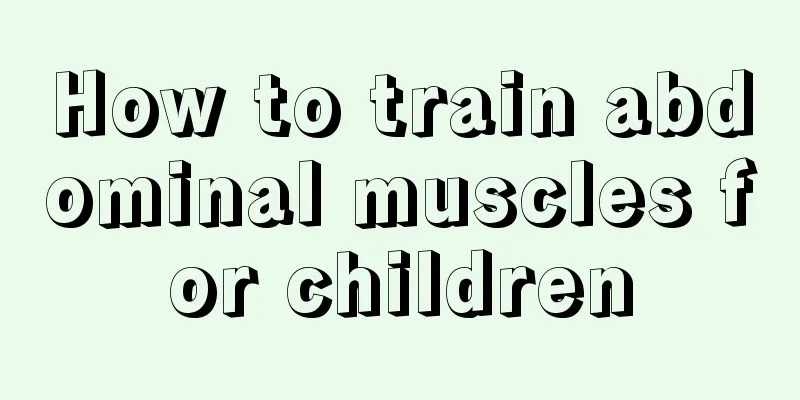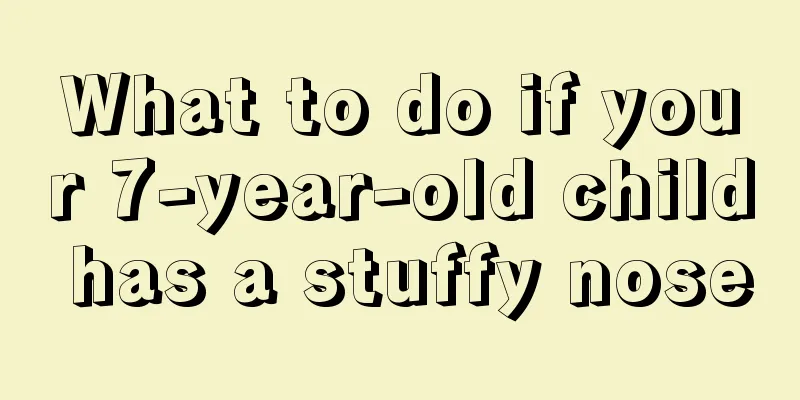Reasons why children have bad breath

|
Looking at the cute appearance of the baby, the mother couldn't help but hold up the little face and give him a kiss. The baby smiled and opened his little mouth...but his mother frowned. Why did the little mouth emit such a bad smell? Did he eat something unclean? Or is the baby sick? So let's see what to do today? How can we get rid of the baby's bad breath. 『The reason why your mouth smells bad』 Still wet behind the ears Babies whose staple food is dairy products, or who prefer meat to vegetables, are prone to bad breath because their food is mostly protein, so the production of ammonia, indole and amines in the gastrointestinal tract increases. This is what people often call "baby smell". However, this is not strictly speaking bad breath. Bad habits Does the mother clean the baby's mouth every day? If the baby is not given a good habit of oral cleaning or brushing teeth, the little mouth will certainly emit an unclean odor. When there is milk accumulation or accumulated food residue in the mouth that is not cleaned in time, or when food stuck in the gaps between teeth and in cavities ferments and rots, the produced indoles, sulfhydryls and amines will emit a strange or foul smell. Decreased saliva Water and saliva in the mouth can lubricate the mucous membrane, remove microorganisms, and maintain the oral environment. If the baby does not pay attention to replenishing water, the water and saliva in the mouth will decrease, the mouth will become dry, the bacteria will decompose and release, and the volatile products will increase, causing the little mouth to smell bad. indigestion When babies eat too many snacks, have an irregular diet, overeat, or eat unclean food, it increases the gastrointestinal burden, damages the spleen and stomach, causes gastrointestinal diseases, digestive dysfunction and indigestion, and the child will show symptoms such as anorexia, bad breath, and constipation. Mouth ulcers Oral ulcers often occur on the baby's oral mucosa and the edge of the tongue. They are often white ulcers with a red halo around them. They are very painful if touched, especially after eating sour, salty, or spicy foods. The pain is more severe. Babies with oral ulcers are more likely to have bad breath and are often accompanied by bloody saliva. The causes of oral ulcers are complex and are not necessarily caused by getting too hot. It may be related to the baby's picky eating habits. Inflammation Caries or gingivitis: Gingivitis or food stuck in caries holes and tooth spaces ferments and decays, causing unpleasant or foul odors. Respiratory diseases: such as tracheitis, pneumonia, lung abscess, bronchiectasis, etc. can affect the function of the digestive system, leading to gastrointestinal dysfunction and indigestion resulting in odor, or the disease itself can cause the exhaled gas to have a rotten odor. Rhinogenic diseases: such as rhinitis and sinusitis. Babies may put foreign objects into their nasal cavity while playing, which may cause corruption, or sinusitis may cause bad breath. In addition, some babies with otitis media may also have bad breath. "Fragrance Change Plan" Program 1: Oral Hygiene Brushing your teeth is the most effective way to keep your mouth clean, prevent oral diseases and stay away from bad breath. For babies under 1 year old, mothers should clean their babies' mouths with gauze dipped in warm water after breastfeeding or every night, or rinse their mouths with warm boiled water after breastfeeding; babies over 1 year old may drink some warm boiled water or rinse their mouths with light salt water every night, or try brushing their teeth with a finger toothbrush; babies over 2 years old can learn to brush their teeth by themselves, but in order to ensure effective brushing, they must do it with the help of their mother. At this stage, it is of utmost importance for mother to cultivate his good habit of brushing his teeth in the morning and evening! Plan 2: Stop eating before bed Do not let your baby eat unclean food, especially do not eat sweet and greasy things before going to bed. Let your baby eat more fruits and vegetables to increase fiber and vitamins, which can promote intestinal motility and reduce stool retention. This is also beneficial for preventing and treating gastrointestinal and oral diseases and preventing bad breath in babies. Plan 3: Drink more water We should encourage and train our babies to drink more cold boiled water to keep their mouths moist and the environment clean, and reduce the occurrence of oral diseases. In this way, children can have sweet breath and stay away from diseases. It is best for mothers to ensure that their babies drink at least 5 glasses of water every day, and beverages do not count! Plan 4: Utensil cleaning The eating utensils and feeding utensils used by the baby should be cleaned and disinfected regularly. If the baby is breastfeeding, the mother should pay more attention to the cleanliness of the nipples to reduce infection by pathogenic bacteria and prevent the occurrence of gastrointestinal and oral diseases. Plan 5: Take some medicine When you find that your baby has bad breath, it is best for the mother to take him to the hospital for a check-up to rule out the possibility that the baby suffers from indigestion, tooth decay, nasal, oral, periodontitis and other diseases, and then carry out targeted treatment and medication. When the lesion is cured, the baby's bad breath will disappear on its own. During treatment, be sure to use medication reasonably under the guidance of a doctor. It is not uncommon for babies to have bad breath, which often causes concern for parents. Indeed, this worry is not unnecessary. Baby's bad breath may be a reaction to some underlying disease. Parents must pay attention to it! Smell the odor and find its source: The oral cavity is the entrance for the human body to obtain necessary substances. It is interconnected and contains teeth, gums, pharynx, tonsils, and various salivary glands. It connects to the nasal cavity above, the digestive tract and airway below, and runs across the middle ear. Therefore, diseases in these parts can cause bad breath. The smell of saliva also provides information about certain internal organ diseases. Oral origin: milk accumulation or accumulated food residues in the mouth that have not been cleaned in time; large cavities in the teeth with corrupt dirt inside; inflamed and bleeding gums, or pus discharge from gingival fistulas; oral ulcers, tonsillitis, pharyngitis, etc. When food residues, necrotic tissue and pus are acted upon by bacteria, they produce indoles, sulfhydryls and amines, which can emit putrid bad breath. Rhinogenic: rhinitis, sinusitis. Babies often put foreign objects into their nasal cavity while playing, causing rhinitis and nosebleeds, which can lead to bad breath. Gastrointestinal origin: A type of indigestion caused by gastrointestinal dysfunction, often with a sour and foul odor when belching. Eating foods such as garlic and onions may have the special odor of this type of food. Babies who eat too much sweets, high-protein, and high-fat foods often suffer from bad breath. Respiratory tract origin: tracheitis, pneumonia, lung abscess, bronchiectasis, exhaled gas may have a rotten odor. Otogenic: If the baby suffers from otitis media, it may also cause bad breath. Identify diseases by smelling them: Rotten egg smell: often indicates indigestion and liver disease. Putrid odor: mostly caused by oral inflammation and poor oral hygiene habits. Rotten apple smell: indicates ketoacidosis. Purulent bad breath: It is mostly caused by ulcers, erosions and suppuration in the lesions of diseases such as foreign bodies in the baby's nasal cavity, atrophic rhinitis, sinusitis, purulent tonsillitis, lung abscess, bronchiectasis, etc. Sour taste: often seen in babies with gastrointestinal disorders. Bloody smell: bleeding diseases such as nosebleeds and gastrointestinal bleeding Ammonia smell: Hepatic coma Deodorization and odor treatment: 1. Cultivate the habit of paying attention to oral hygiene in children from an early age, and make sure they rinse their mouths after meals and brush their teeth in the morning and evening. 2. Eat regularly. Eat more vegetables and fruits, and combine coarse and fine foods. Don’t be picky or biased about food, and don’t overeat. 3. Prevent indigestion. When indigestion occurs, you can take some digestive and gastrointestinal motility drugs appropriately. 4. Pay attention to the prevention and timely treatment of caries and malocclusion. Eat less sweets, especially before going to bed. 5. Use Chinese medicine decoction of reed root, mint, and patchouli, or 1% hydrogen peroxide, 2% soda water, 2% boric acid water, etc., and choose one of them to gargle with to reduce or eliminate bad breath. Friendly reminder If your baby has persistent bad breath, you must not delay treatment. You need to seek a thorough examination from an experienced doctor to find out the cause and prescribe the right medicine to eliminate the bad breath. After reading so many reasons for children's bad breath, do you have a plan in mind and know how to make your baby's mouth fragrant? Then help your baby according to the methods. In fact, the most important thing is to pay attention to your daily living habits. Don't eat too greasy food, eat light food, drink more water, and don't eat before going to bed. This way you can prevent it. I hope the above suggestions can help everyone. |
<<: Ways to improve children's immunity
>>: What causes puffy eyes in children?
Recommend
What are the symptoms of a fish bone stuck in a baby
Fish bones are bones in fish bodies and are a spe...
How much artificial feeding should a newborn baby receive?
When newborns are born, they are very light and t...
Is pediatric massage really useful?
Pediatric massage is accepted by more and more pe...
How to give first aid to a child who suddenly goes into shock
Shock is a common emergency and serious illness i...
What causes green stool in children?
Stool can also show whether people are suffering ...
Can six-month-old babies use air conditioning and what are the precautions?
When the weather is hot in summer, we will use ai...
My child suddenly can't hear clearly, what's going on?
Suddenly, the child cannot hear clearly. This not...
How to deal with perihilar inflammation in children?
Papillomavirus is an epitheliotropic virus that i...
What to do if your baby has a fever, runny nose, and cough
Babies do not have strong expressive abilities an...
What should I do if my child is always constipated?
Children are more prone to constipation, and it i...
Is it okay for children to fart?
Everyone's physical condition is different, a...
What are the symptoms of milk allergy in children?
Children are young and have poor physical fitness...
Cultivation of children's behavioral habits
The younger the child is, the more difficult it i...
How tall is a 10 month old baby?
Generally speaking, a baby's height will grad...
Is premature infant cholestasis easy to treat?
The visceral system of premature infants is not f...









